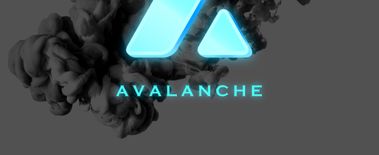The following is a guest post from Ari Meilich, the project lead for Decentraland, a virtual reality platform powered by the Ethereum blockchain in which users can create and monetize content and applications.
The market value of the cryptocurrency space recently surpassed $100 billion, and thousands of blockchain projects are aiming to disrupt entire industries with new ways to transact money, goods, and data.
However, most blockchain technologies must face the reality that they still need time to mature. The biggest hurdles they face involve scaling, security, and adoption. Virtual reality (VR) can reduce many of these issues, helping to bring new blockchain technologies to market more quickly.
This is why blockchain and VR fit seamlessly together:
1. VR empowers developers to experiment like never before
VR creates a completely customizable environment. Developers can manually set and alter the surroundings, physics, and social parameters. With VR, blockchain developers can experiment in ways that would be impossible in the physical world.
The biggest advantage is that VR users don’t have any preconceptions about what the experience should be. Many gaming universes have introduced completely new currencies, with users adopting them at mass scale with no hesitation. For example, World of Warcraft alone has more than 70 accepted digital currencies. Adoption of new technology is quicker when there is no pre-existing alternative.
VR lets blockchain developers build and experiment without being tied to a historical system. They can start from scratch, leveraging their findings, data, and user behavior in the physical world.
As Fred Ehrsam, Co-Founder of Coinbase, noted:
“I’d guess blockchains will be the full-blown backbone of virtual worlds — the system for currency, assets, identity, even governance — before doing the same in the “real world.” Which is where I think we will end up in the real world eventually; it’s just a matter of which goes first and how long until it’s the case for both.”
[caption id="attachment_55121" align="alignleft" width="200"]

2. VR promotes new ways to interact socially
As with blockchains, VR platforms don’t need to be tied to geography or status: All users are equal. This will radically change how we conduct business, leisure, and cultural exchanges.
The Internet attempted to do this through telecommuting and global workforces, but progress was limited because traditional companies are still bound by the laws and regulations of their domiciled nations. These factors can artificially shift management, hiring, and workflow decisions.
Blockchain projects are breaking these long-standing restrictions. For example, Aragon lets you manage entire organizations using Ethereum. “By making it possible for everyone in the world to organize,” the company says, “we are enabling the borderless, permissionless creation of value.” Decentralized organizations like those powered by Aragon would benefit immensely by using a VR platform to conduct interactions and transactions.
For example, Decentraland is creating the first completely decentralized virtual platform, where its users own the network by logging ownership in the Ethereum blockchain. New technologies like Aragon and Decentraland could give rise to the first truly borderless companies, taking full advantage of a global workforce. Companies can recruit, hire, and manage their employees with no regard for ethnicity, nationality, or class.
3. VR will push blockchain development toward the future
Using VR worlds, humans will be able to socialize and transact goods and services like never before. This will provide new ways to implement blockchain technologies.
As Euvie Ivanova of Future Thinkers stated:
“Virtual reality is not just a platform for gaming and content consumption, it’s a way to create transformative experiences. I believe it can also be a tool to transform the way people think. What better way to explore cities, digital landscapes, hostile natural environments, and other dimensions of reality and space? What better way to tell stories and share life experiences?”
VR worlds are in their early stages, but their capabilities will soon far surpass what is available in the physical world. Eventually, VR worlds will go beyond simply replicating possibilities in the physical world. VR developers and blockchain projects will allow users to adopt new behaviors never before seen outside virtual reality. Watching these two technologies work in tandem will unleash the best qualities of both.








